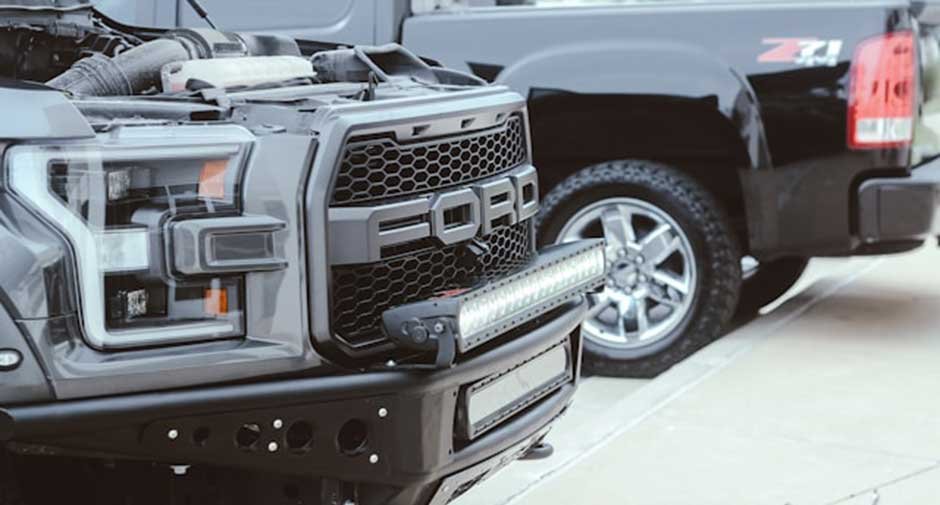Any strong, dependable diesel truck’s engine, an engineering marvel built to resist the demands of heavy-duty service, is its heart. Diesel engines are renowned for their dependability and endurance, but this dependability can only be ensured by careful maintenance procedures. Maintaining your vehicle properly not only increases its lifetime, but also improves its performance, safety, and gas mileage. Attempt these thorough maintenance techniques to ensure the long-term smooth operation of your diesel truck.
Stressing the Need for Regular Filter Replacement and Oil Changes
Any vehicle’s health depends on regular oil changes, but diesel vehicles require them even more. Oil deteriorates more quickly in diesel engines because of their increased operating pressure and temperature. Frequent oil changes minimize wear and tear on engine parts, preserve ideal lubrication, and stop the accumulation of hazardous sludge. To guarantee that clean oil flows through the engine and traps pollutants, replacing the oil filter is a need in addition to oil changes. To keep the engine’s integrity and performance intact, it’s best to replace filters and get multi purpose oil at the manufacturer’s recommended intervals.
Watching Over and Taking Care of the Cooling System
To prevent the diesel truck’s engine from overheating and seriously damaging itself, the cooling system is needed. Regular maintenance is essential for the radiator, coolant levels, and hoses, among other cooling system parts. The coolant should be replaced and kept at ideal levels per the manufacturer’s instructions. Make sure the coolant is free of contaminants and corrosion, and inspect the radiator and hoses for leaks or cracks.
Ensuring Appropriate Fuel System Upkeep
To run efficiently, diesel engines rely on fuel systems. Injectors, filters, and pumps that make up the fuel system must be serviced on a regular basis. Diesel engines are less efficient and produce more pollution when fuel contaminants clog injectors. Injector cleanliness and efficiency may be maintained using premium fuel and additives. Changing the gasoline filter often will keep pollutants out of the engine’s fuel system, which includes the injectors and pumps.
Inspecting and Preserving the Transmission Mechanism
Diesel trucks’ transmission systems endure a great deal of strain, particularly in heavy-duty applications. To guarantee smooth performance, the transmission fluid, filters, and other components must be regularly maintained. It is important to periodically check the levels of transmission fluid and replenish it in accordance with the manufacturer’s instructions. To lubricate the transmission’s parts, lower friction, and avoid overheating, clean transmission fluid is essential.
Examining and Maintaining the System for Exhaust
The exhaust system is essential for a diesel vehicle’s engine performance and emissions control. The catalytic converter, exhaust pipes, and muffler are among the exhaust system’s constituent parts that require routine maintenance and inspections. Make sure the exhaust system is operating correctly and look for any indications of leaks, corrosion, or damage. In addition to lowering emissions, a well-maintained exhaust system improves engine performance and fuel economy.
Upkeep of the Electrical Infrastructure
Starting the engine, powering accessories, and ensuring the operation of other systems are all responsibilities of the diesel truck’s electrical system. Maintaining and inspecting the battery, alternator, and wires is crucial for dependable functioning. Check the battery’s charge status and look for corrosion at the terminals. Make that the alternator is turning over smoothly and that the connections to the electrical components are secure and unbroken.
Frequent Suspension and Steering Component Inspection
Diesel vehicles’ suspension and steering systems endure extreme pressure, particularly in heavy-duty or off-road situations. The shocks, struts, and bushings are among the suspension components that need periodic maintenance and inspections to provide a safe and comfortable ride. Verify that none of the steering parts, such as the ball joints, tie rods, and steering gears have excessive wear or damage.
Conclusion
For your diesel vehicle to last a long time and be reliable, appropriate maintenance is required. Stressing the importance of regular oil changes, checking and maintaining the cooling and fuel systems, inspecting the exhaust, checking the transmission, maintaining the electrical system, and performing routine suspension and steering inspections will help guarantee that your truck runs smoothly for many years to come. Such proactive measures not only save costly repairs but also enhance performance, safety, and fuel economy. A diesel car can have a long lifespan if it is properly maintained.






